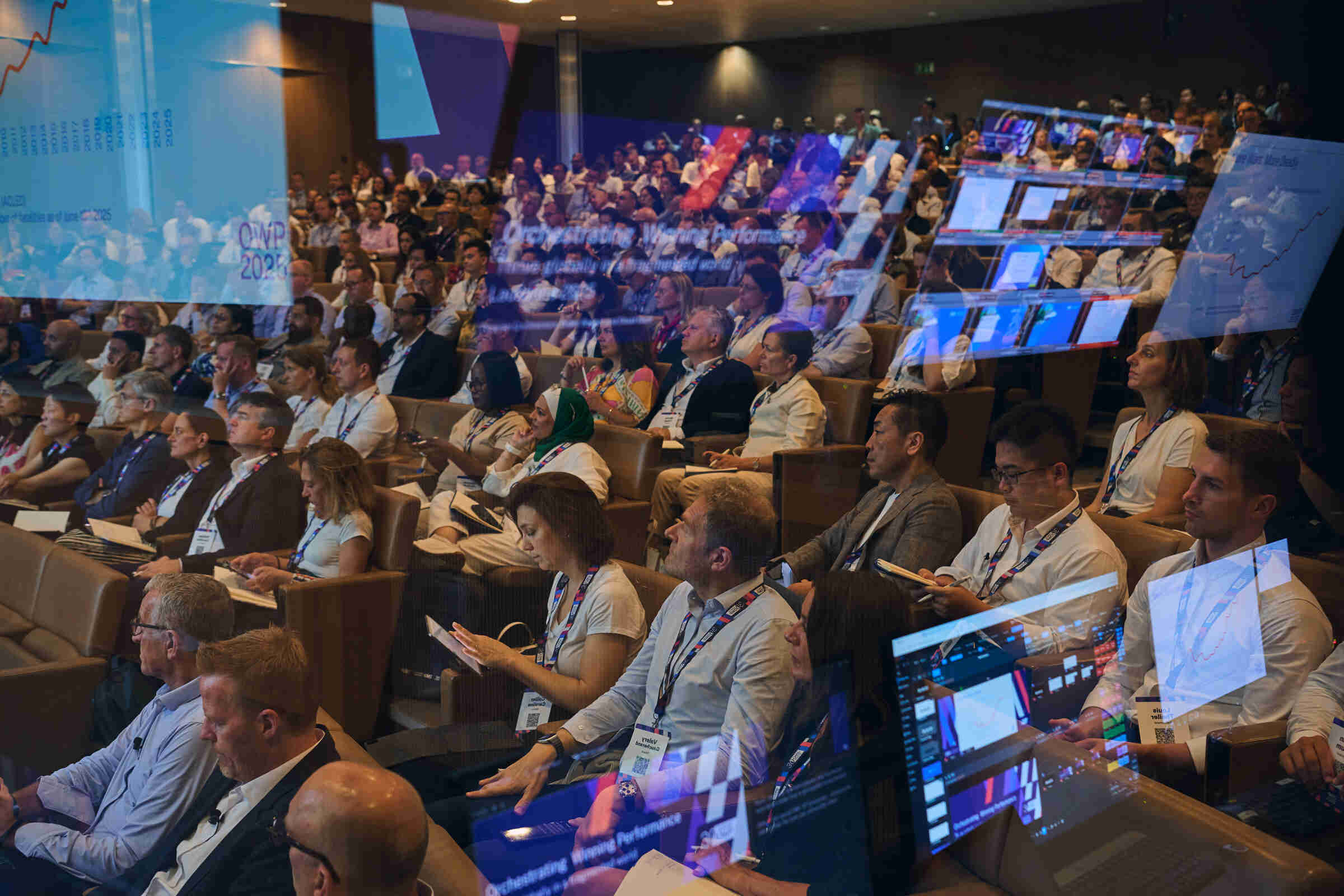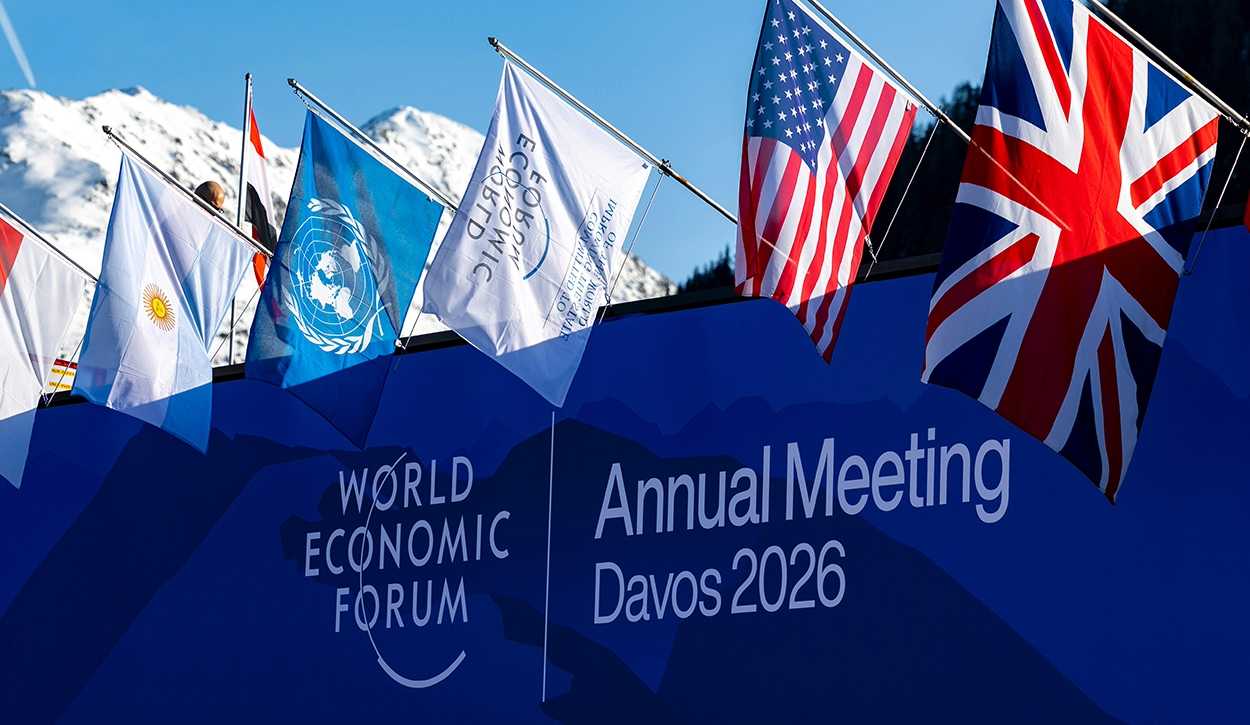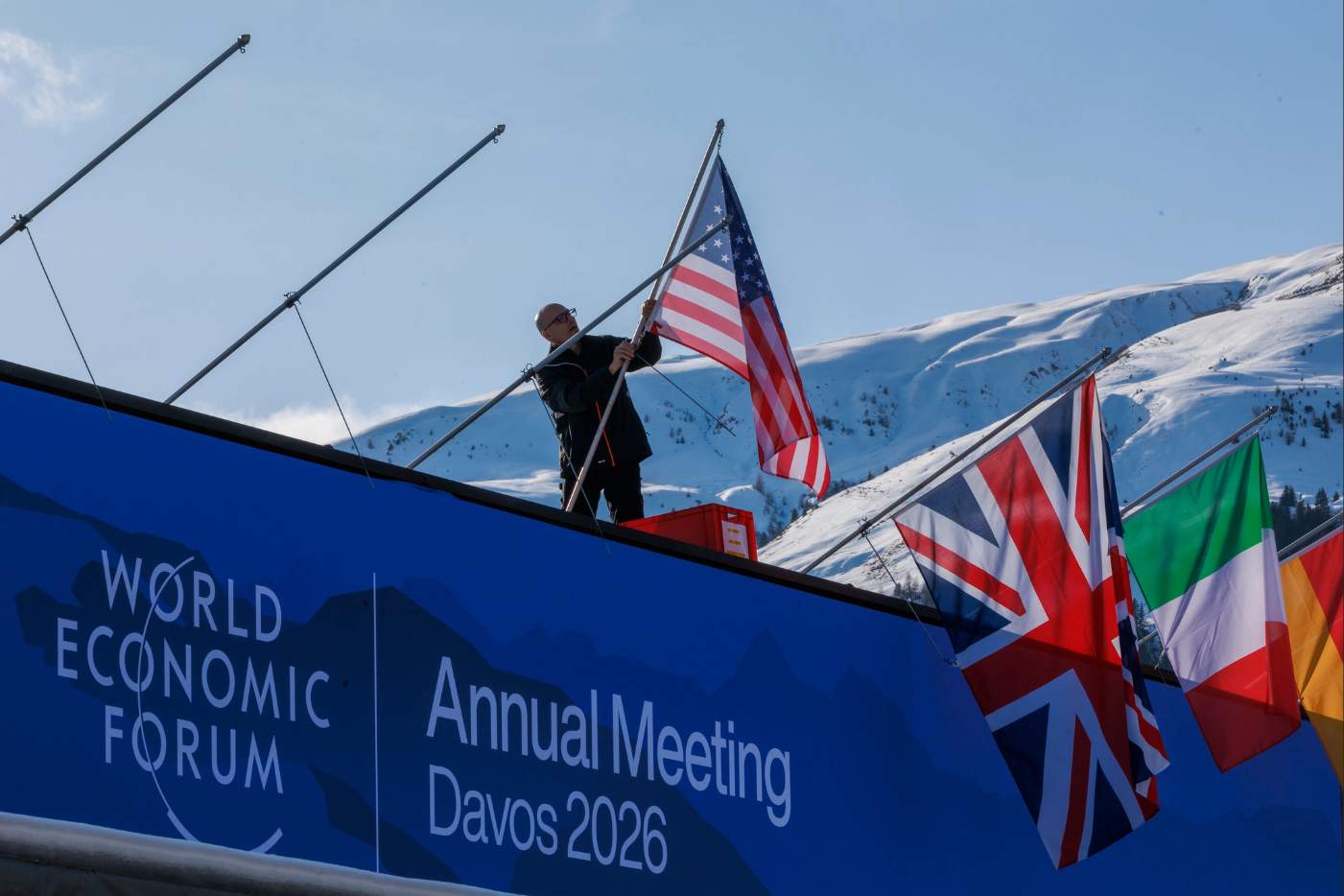
Optimism as strategy
Countries building ecosystems where government vision, business innovation, and investor confidence reinforce each other to gain competitive advantage through strategic optimism. ...
June 23, 2025 • by Arturo Bris in Geopolitics
To thrive in a fragmented world, business leaders must stop being passive spectators and start actively shaping geopolitics, urges IMD’s Arturo Bris...
Twenty years ago, civil society leaders like South Africa’s Nelson Mandela, Tunisia’s Mohamed Bouazizi, and Myanmar’s Aung San Suu Kyi were the revolutionaries who drove change. Today, most of the big societal transformations of the 21st century – from the development of COVID-19 vaccines to the rise of generative AI – are government-led.
This shift presents a fundamental challenge to our competitiveness. At the IMD World Competitiveness Center, which I direct, we define competitiveness as resting on three pillars: prosperity, collaboration, and productivity.
Put simply, collaboration is like riding a bicycle. The government is the bicycle itself: the better your equipment, the faster you can go. However, the bicycle and the rider must match each other perfectly. The rider needs to be fit and capable.
Here’s our problem: while our bicycles have become increasingly sophisticated with technologically advanced features, the riders have grown out of shape. Consider the evolution from a simple mechanical bike to today’s electric models with heavy, complex battery systems. Previously, if you had a mechanical problem, it wasn’t catastrophic; you could still pedal home, albeit with some effort. But with an electric bike equipped with heavy batteries, if you’re not in good physical condition and that battery dies, the weight of the advanced technology becomes a burden rather than an asset. You’re left stranded, unable to move forward despite having superior equipment.
Whether you are a bank in Malaysia or a technology company in Norway, there is a lot you can do to change our global society. We can no longer rely solely on politicians to lead the way.
Today, competition has overwhelmed collaboration among nations. Geopolitics has interfered with geoeconomics, and vice versa. We have witnessed a fundamental shift: from multilateralism to tariffs, from global trade to currency wars, from “united” nations to fragmented regulation, from comparative advantage to protectionism, and from talent and capital flows to capital flight, migration restrictions, and technological supremacy battles. Armed conflict, violence, and wars are proliferating and becoming increasingly deadly – as shown by the ongoing conflicts in Gaza and Ukraine.
When it comes to trade wars, US President Donald Trump is technically winning with his combative, zero-sum game approach. Since Liberation Day, the US Dollar has depreciated significantly against major currencies like the Swiss Franc and the Euro making US goods cheaper abroad. Yet this may prove a Pyrrhic victory – a win that comes at such a huge cost that it is tantamount to defeat. The cost of borrowing in US dollars has increased, and this trend is likely to persist.
This fragmentation is creating ripple effects worldwide. Earlier in June, the Swiss National Bank cut interest rates to zero amid a surge in the value of the Swiss franc driven by the US trade war and global uncertainty. This affects the economy’s ability to sustain economic growth.
Yet, we must remember that the Trump Presidency is a symptom, not a root cause. We are trapped in a vicious cycle of societal challenges where technology breeds inequality, which fuels social unrest, populism, and wars, leading to resource scarcity, protectionism, and ultimately, destitution.
The message to corporate leaders is unambiguous: we can no longer be passive spectators in the geopolitical arena. Whether you are a bank in Malaysia or a technology company in Norway, there is a lot you can do to change our global society. We can no longer rely solely on politicians to lead the way.
The 2025 World Competitiveness Ranking reinforces this urgency. Our survey of corporate executives on business challenges reveals that political differences are the primary driver of polarization in economies like Brazil, Spain, Taiwan, the Slovak Republic, and Slovenia. In emerging markets, income inequality fuels polarization, whereas in the Netherlands, Austria, and Sweden, it is social divisions that create fractures. Meanwhile, a lack of economic opportunities is driving polarization in South Africa and China.
Those economies that top this year’s ranking – Switzerland, Singapore, Hong Kong, Denmark, and the UAE – are those that excel at fostering partnerships between the public and private sectors. The results show that government efficiency has become a cornerstone of long-term resilience. True efficiency encompasses agility, inclusiveness, and forward-looking policy frameworks, qualities that require active partnership between public and private sectors to achieve.

“In the realm of geoeconomics, executives have too many answers but often lack the right questions. For instance, they ask, “Where is growth?” rather than “Whose rules apply?"”
So, how can global governance survive? Do we even need global consensus, let alone achieve it?
I don’t profess to be an expert in leadership – my focus is on finance and geopolitics – but I have gathered five sage pieces of advice on what leaders can do to regain their voice and play a more active role.
Former Italian Prime Minister Matteo Renzi has expressed his frustration that corporate leaders today are mere followers. Rather than simply reacting to political risk, companies today need to actively shape it.
In the realm of geoeconomics, executives have too many answers but often lack the right questions. For instance, they ask, “Where is growth?” rather than “Whose rules apply?” My IMD colleagues Arnaud Chevallier, Frédéric Dalsace, and Jean-Louis Barsoux have written an excellent Harvard Business Review article on The Art of Asking Smarter Questions, which is, in my view, essential reading for leaders today. You can analyze your own question mix by taking this IMD assessment.
American economist and academic Robert J Shiller argues that we should start with realities rather than narratives. Too often, the world is shaped by opinions and misinformation. As academics and leaders, we must be rigorous about statements that lack factual support and clearly distinguish between forecasts and established facts.
American political scientist and author Ian Bremmer and Turkish-American economist Nouriel Roubini have both emphasized the importance of increasing our geopolitical literacy. Read publications like The Economist and Foreign Affairs to deepen your understanding of what is going on in the world.
Finally, former Unilever CEO Paul Polman and BlackRock co-founder Larry Fink have both stressed the importance of staying true to values. If your company wants to play a role in building a better world, you need to speak up – especially in contested times. Only by doing so will you show whether you prioritize values or financial results.
We cannot remain passive spectators. If we do, we risk reaching a point where the electric bike operates autonomously, no longer requiring – or responding to – its rider.
We need to return to a global system where the rider is truly in control. We have sophisticated bicycles – governments with advanced capabilities and resources – but we need skilled, engaged riders to navigate them effectively. This requires genuine collaboration between the public and private sectors.
The private sector must make strategic decisions that influence governments to adapt their policies. We cannot remain passive spectators. If we do, we risk reaching a point where the electric bike operates autonomously, no longer requiring – or responding to – its rider. Should that happen, we lose the essential human element that drives purposeful direction and accountability. Without active private sector engagement steering the course, our societies will drift toward technocratic governance disconnected from the real needs of citizens and markets alike.
This article is inspired by a keynote session at IMD’s signature Orchestrating Winning Performance program, which brings together executives from diverse sectors and geographies for a week of intense learning and sharing with IMD faculty and business experts.
Read the white paper on the 2025 IMD World Competitiveness Ranking.

Professor of Finance at IMD
Arturo Bris is Douglas Geertz IMEDE 1988 Professor in Geopolitics and Business and Professor of Finance at IMD. Since January 2014, he has led the world-renowned IMD World Competitiveness Center. At IMD, Bris directs the Boards and Risks program and Blockchain and the Future of Finance program. He also previously directed the flagship Advanced Strategic Management program between 2009 and 2013.

February 2, 2026 • by David Bach, Huda Al Hashimi in Geopolitics
Countries building ecosystems where government vision, business innovation, and investor confidence reinforce each other to gain competitive advantage through strategic optimism. ...

January 23, 2026 • by David Bach, Julia Binder in Geopolitics
Live from Davos: IMD’s Julia Binder and David Bach cut through the headlines on geopolitics, AI, energy – and competing visions for the international order....

January 23, 2026 • by David Bach, Julia Binder, Arturo Bris, Frédéric Dalsace, Simon J. Evenett, Florian Hoos , Jennifer Jordan, Sara Ratti, Karl Schmedders, Sarah E. Toms, Ginka Toegel in Geopolitics
From Trump and transatlantic tensions to AI’s reality check and sustainability’s reinvention, Davos 2026 signals a shift toward values-based pragmatism....

January 12, 2026 • by Simon J. Evenett in Geopolitics
In turbulent times, companies can justify their investments in geopolitical assets by moving beyond risk mitigation and using foresight to gain competitive advantage and create value....
Explore first person business intelligence from top minds curated for a global executive audience